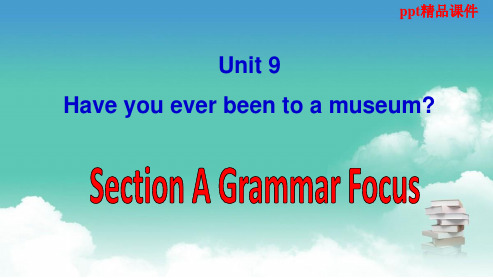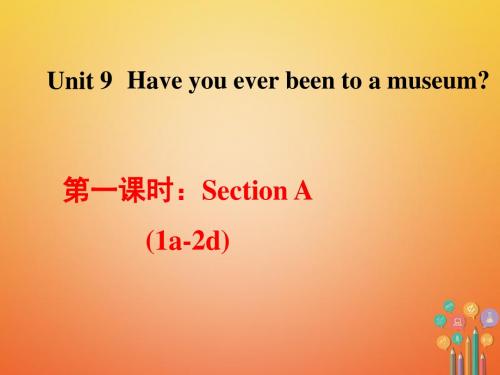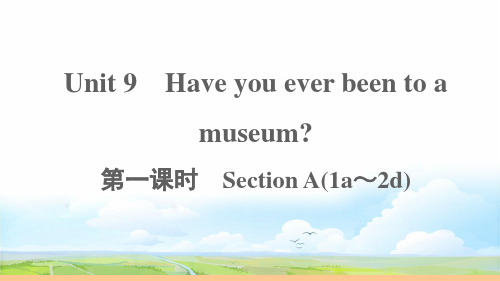Yes, I have. No, I haven’t. Yes, she has. No, she hasn’t.
ppt精品课件
ppt精品课件
1. 在现在完成时中 ever, never, just, already, yet在用法和意思上 有什么区别?
现在完成时表示过去发生或完成的某一动作对现在造成的影 响或结果。 如:Have you read that story?你读过那个故事吗?(“读” 这一动作发生在过去,对现在造成的影响是:是否知道故事 的内容。) I have bought two apples. 我买了两个苹果。 (“买”这一 动作发生在过去,对现在造成的结果是:拥有两个苹果。)
ppt精品课件
Yes I’ve been to a science museum. / No, I’ve never been to a science museum.
Yes, I have. I went there last year./ No, I haven't.
I’ve been to the art museum many times.
ppt精品课件
(3). Have (has) been to 后面可接次数, 表示去过某地几次。 如:I've been to Beijing three times. 我去过北京三次。 They have been to that village several times. 他们去过那个村庄好几次了。 (4). Have (has) gone to 意为“到某地去了”,表示到了某地或正在去 某地的途中。总之,说话时该人不在现场,一般不用第一、二人称 代词作主语。 如: —Where is Tom? 汤姆在哪里? —He has gone to the bookshop. 他到书店去了。





